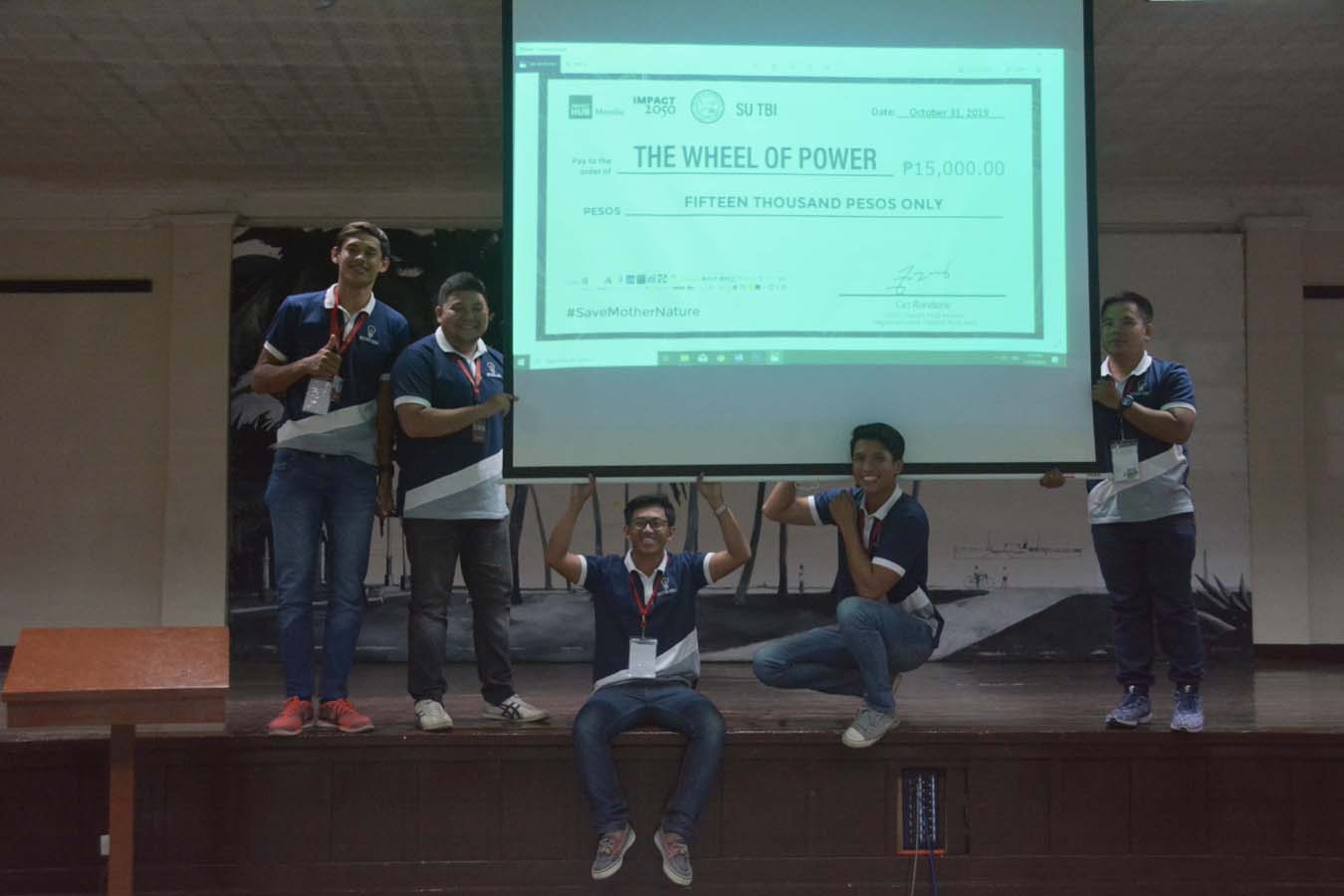
EE students to compete in final pitching of national hackathon
A team of electrical engineering students from Silliman University (SU) will represent Negros Oriental in the culminating event of Impact Hackathon, the largest hackathon in the Philippines, on Nov. 19 at Makati City.
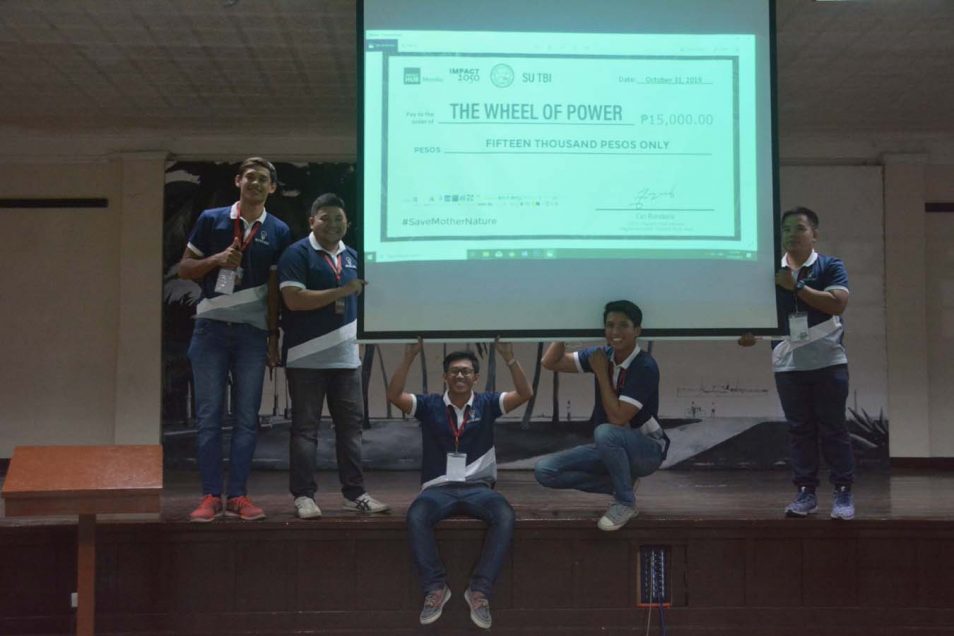
Silliman University (SU) electrical engineering students Rene Anthony Kinalamay, Tomo Klemann, Marcelo Tayko Jr., Joshua Laviste and Arkenson Duran won the student category of the Impact Hackathon Negros Oriental leg with their pico hydropower plant project “Wheel of Power.” The team won PhP 15,000 and an all-expense paid trip to Manila to compete in Impact Hub Manila’s 2050Fest.
Rene Anthony Kinalamay, Tomo Klemann, Marcelo Tayko Jr., Joshua Laviste and Arkenson Duran won the student category of the Negros Oriental leg of Impact Hackathon with their pico hydropower plant project “Wheel of Power,” which generates up to five kilowatts of power from flowing water.
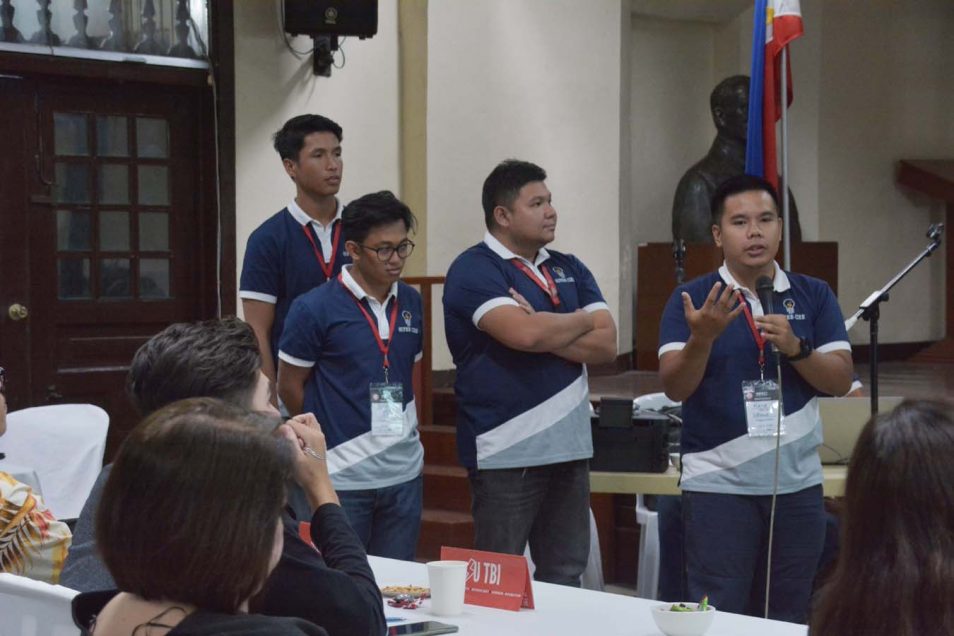
SU electrical engineering students present their project to the judges
“With this power plant, we [can] use it to power our automated alarm system for the farmers’ irrigation. It notifies the farmer once the irrigation is full. Once its full, it automatically shuts down the filling of water. Other than that, it can power other electrical appliances like lights, and you can charge your phones, laptops, or radios and anything else…We can place it on any flowing stream of water to generate power,” said Klemann, fifth year BS Electrical Engineering student.
Klemann said their team focused on development for the agricultural sector to help farmers through their project.
The team will compete in 2050Fest, the final pitching challenge of the Impact 2050 Program following the Impact Hackathon. Winners will win cash prizes and a year-long incubation that includes blended-learning training, mentorship, and access to Impact Hub’s network of professionals.
Impact Hackathon was a nationwide, simultaneous coding marathon conducted in around 10 cities last Oct. 30-31, organized by Impact Hub Manila to develop technological solutions for social issues and viable business projects in the following themes: Climate Change, Smart cities, Education, Health and Agriculture.
The SU Technology Business Incubation (TBI) hosted the Negros Oriental leg of Impact Hackathon at SU Hall, where 16 teams of students from SU, Negros Oriental State University, St. Paul University Dumaguete, Foundation University, Asian College, Siquijor State University and Holy Name University, as well as professionals competed in the hackathon under the student and professional categories.
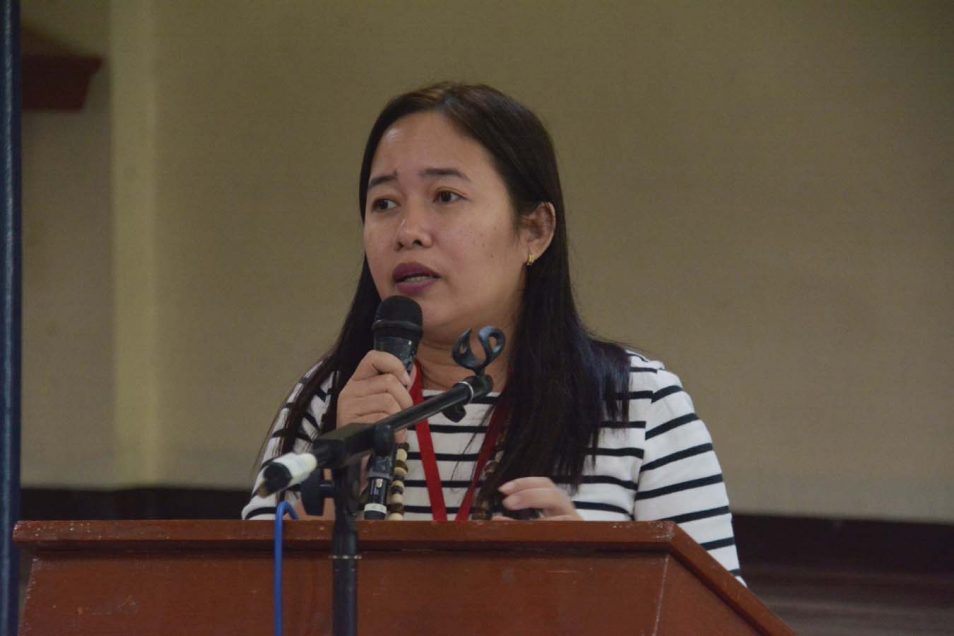
Janice Antoniette V. Förster, SU Technology Business Incubation manager
Janice Antoniette V. Förster, SU TBI manager, said Impact Hackathon was a “reverse” hackathon, wherein solutions were created based on the problems provided.
Förster said SU TBI was chosen to host the Negros Oriental leg of the hackathon as a partner of Impact Hub Manila.
“(SU TBI is) building a strong momentum of a new culture, not just in SU but in the entire region so that student ideas will be empowered. With the support of DTI, DOST, DICT and our LGUs, we are giving our students and professionals more doors of opportunity to make a difference and create an impact to our society that will ultimately improve our economy,” said Förster.
Another team composed of professionals from Negros Oriental will also compete in 2050Fest. The team won the professional category of the hackathon with their project “Travel View,” a social travel site that can connect travelers to local service providers, hotels, resorts and restaurants with validated reviews.
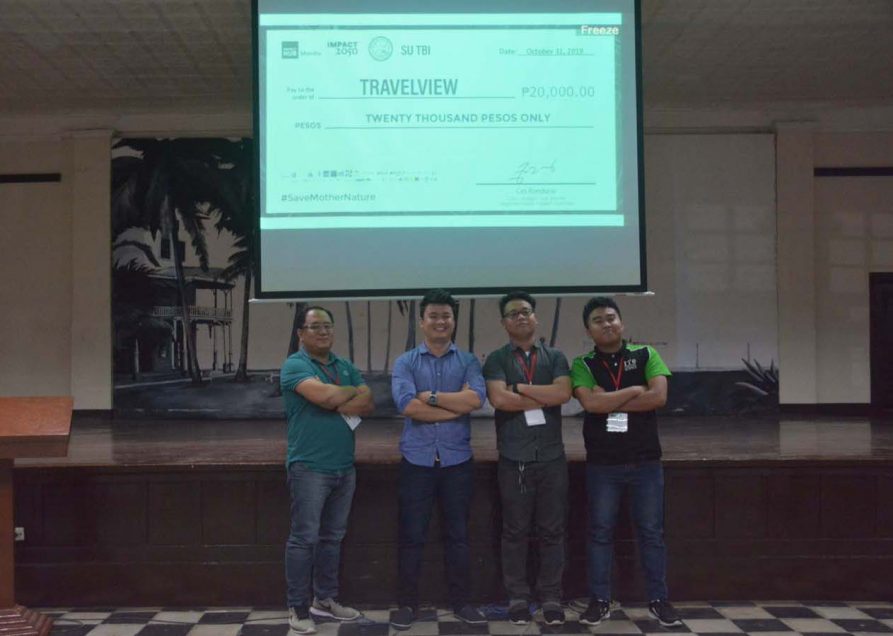
Meljhoven Louis Looc, Gesan Sarupan, Cupid Bercero, Fredwil Jucom and Eric Gamagamag won the professional category of the Impact Hackathon Negros Oriental leg with their project “Travel View.” The team won PhP 20,000 and an all-expense paid trip to Manila to compete in Impact Hub Manila’s 2050Fest.
The Impact Hackathon, as a gathering of coders, entrepreneurs and tech leaders in the country, was also the Philippines’ official attempt to break the Guiness World Record for World’s Largest Multi-City Hackathon. The event was open to non-coders and experts of other fields.
Impact Hackathon was the main event for Impact Hub Manila’s Impact2050 program, a multi-year entrepreneurial program designed to empower innovative digital solutions.
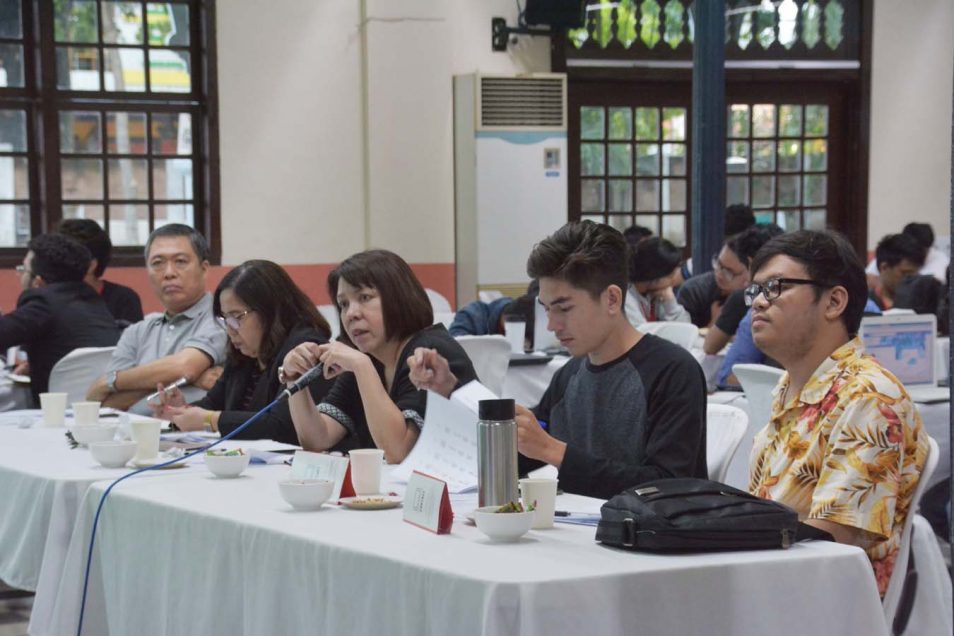
Judges during the pitching portion of Impact Hackathon Negros Oriental leg (L-R): Edward Du, Philippine Chamber of Commerce and Industry Central Visayas regional governor; Atty. Dr. Gloria G. Futalan, College of Business Administration dean; Nannette Arbon, Department of Trade and Industry Central Visayas assistant regional director; and Miller Solutions software developers Jaime Joe Van Stone and Miguel Sobong.
According to its official website, Impact Hub Manila is an incubation hub focused on purpose-driven entrepreneurs whose venture ideas have the potential to impact the lives of Filipinos at large scale. It is part of Impact Hub, the largest incubation network in the world based in Vienna, Austria, which aims to create “measurable positive impact” through entrepreneurial action delivered by communities.


